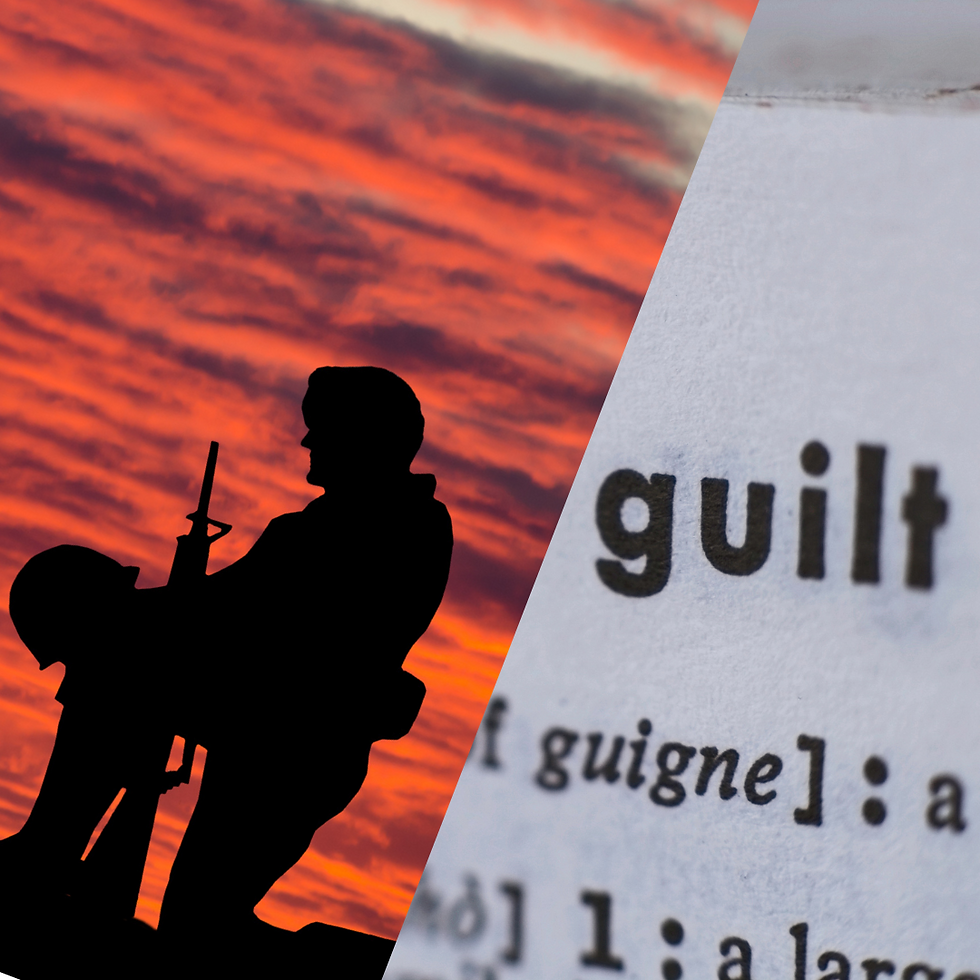The Power of Guilt
- laurel539
- Apr 30, 2022
- 2 min read

One of the difficulties that many veterans face following combat is the moral injury known as “Survivor’s Guilt,” a result of surviving a life-threatening situation, while other fellow veterans did not. This guilt, according to recent surveys, affects 38% of our military men and women. Victor Frankl, a Nazi concentration camp survivor, wrote: “We who have come back, by the aid of many lucky chances or miracles – whatever one may choose to call them – we know: the best of us did not return.”
Guilt of some kind has played a significant role in so many lives. Think of Augustine, that spiritual giant of the 4th century. Raised by a devout Christian mother, his father was a pagan. In his early years, Augustine lived a hedonistic lifestyle, boasting of his sexual exploits, fathering an illegitimate child, taking on mistresses, etc. He boasted in his early prayers, “Lord, grant me chastity and continence, but not yet.”
Then, you are reminded of the Apostle Paul, an early hater of Jesus, a persecutor of Christians, committing believers to prison and death. Yet, following his conversion to Christ, he penned the stirring words of Romans 7:14-24. He was followed by Martin Luther who would wear out his confessors with six hours of introspection in the confessional booth and flog himself every morning to defeat evil thoughts. Puritans lived under the haunting fear that someone, somewhere, is happy.
To the other extreme, Adolf Hitler thought that everyone was different from him and the German people. These non-Aryans were less pure, less noble, less intelligent, less beautiful, and less perfect than he was. Of course, he felt no guilt. Thus, guilt is essential and can be good. Godly guilt is motivated by a sense of violating an ethical, moral, or spiritual principle. It is the opposite of that popular saying: “Never having to say you are sorry.”
In striking relevance to our political situation today, John F. Kennedy said, “Let us not seek the Republican answer, or the Democrat answer, but the right answer.” He went on to say, “Let us not seek to fix the blame for the past. Let us accept our own responsibility for the future.” Paul, Augustine, and Luther did just this: They did not allow their guilt to determine who and what they became. Following a recognition of their past sins, they sought and received freedom from guilt through the grace and forgiveness of God. Paul gives us this same hope in his words from Romans 7:24-8:2.
In Christ, we do not have to go through life afraid, heads bowed in grief, fleeing anything that might be pleasurable, terrified that we might offend a particular principle or law. We do not have to go through life looking like we have been” weaned on dill pickles” (Dr. Ira North). This does not cheapen grace, rather it magnifies the forgiveness offered through Christ. “There is therefore now no condemnation for those who are in Christ Jesus” (Romans 8:1).
Tom Seals




Comments